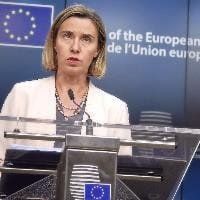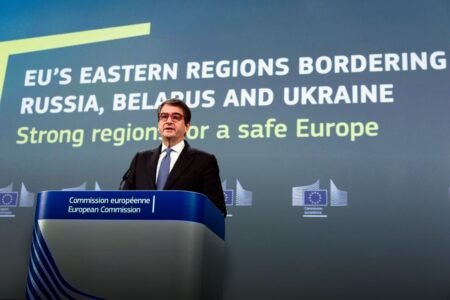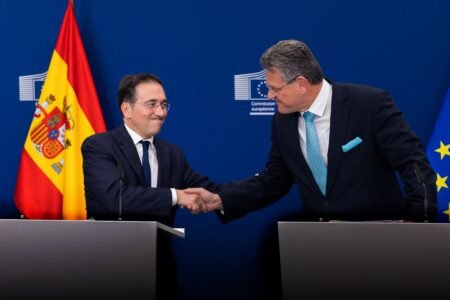(BRUSSELS) – EU foreign affairs and defence ministers agreed Monday to establish joint military headquarters for the planning and conduct of non-executive military missions initially in Somalia, Central Africa and Mali.
The Council’s conclusions set out progress achieved in implementing the EU global strategy in the area of security and defence. The conclusions assess what has been done to implement the various lines of action agreed by the European Council on 15 December 2016. They form the basis of a report for the European Council of 9 and 10 March 2017.
“EU foreign and defence ministers meeting jointly today all gave a very clear message: we are progressing steadily towards strengthened defence cooperation and we will continue to do more,” said the EU’s High Representative for Foreign Affairs and Security Policy Federica Mogherini: “This is about protecting our citizens. The European Union has unique tools to help Europeans to take more responsibility for their own security, and to do more effectively. This is what we are doing with our work in security and defence.”
The Council also approved a concept note on the operational planning and conduct capabilities for CSDP missions and operations, which contains measures to improve the EU’s capacity to react in a faster, more effective and more seamless manner, building on existing structures and in view of enhancing civilian-military synergies, as part of the EU’s comprehensive approach.
The establishment of a military planning and conduct capability (MPCC), within the existing EU Military Staff of the European External Action Service, will focus on planning and conduct of non-executive military missions. Mission commanders in the field will then be able to concentrate on the specific activities of their mission, with better support provided from Brussels.
The MPCC will work under the political control and strategic guidance of the Political and Security Committee (PSC), which is composed of EU member states’ ambassadors and is based in Brussels. The MPCC will work closely with its existing civilian counterpart, the Civilian Planning and Conduct Capability (CPCC) through a joint support coordination cell. This cell will be able to share expertise, knowledge and best practices on issues relevant to both military and civilian missions, as well as capabilities when civilian and military missions are simultaneously deployed in the same area, including medical support or protective measures.
The Council conclusions highlight the establishment of the MPCC. They also take note of progress in other areas of security and defence, and provide further guidance. The areas covered include:
- the possibility of permanent structured cooperation (PESCO). It is foreseen in the Lisbon Treaty that for a group of EU member states may strengthen their cooperation in military matters (Articles 42(6) and 46 TEU). Setting up an inclusive, modular system of permanent structured cooperation would allow member states to collaborate further in the area of security and defence on a voluntary basis.
- the possibility of a member state-driven coordinated annual review on defence (CARD), which would establish a process to obtain a better overview at EU level of issues such as defence spending and national investment as well as defence research efforts. By bringing greater transparency and political visibility to European defence capabilities, a CARD would provide for a better identification of shortfalls and allow for them to be addressed through deeper defence cooperation as well as better and more coherent approach to defence expenditure planning.
- ongoing work in other areas, such as on strengthening the EU’s rapid response toolbox, including the EU battlegroups and civilian capabilities, capacity building in support of security and development, situational awareness and defence capability development.








